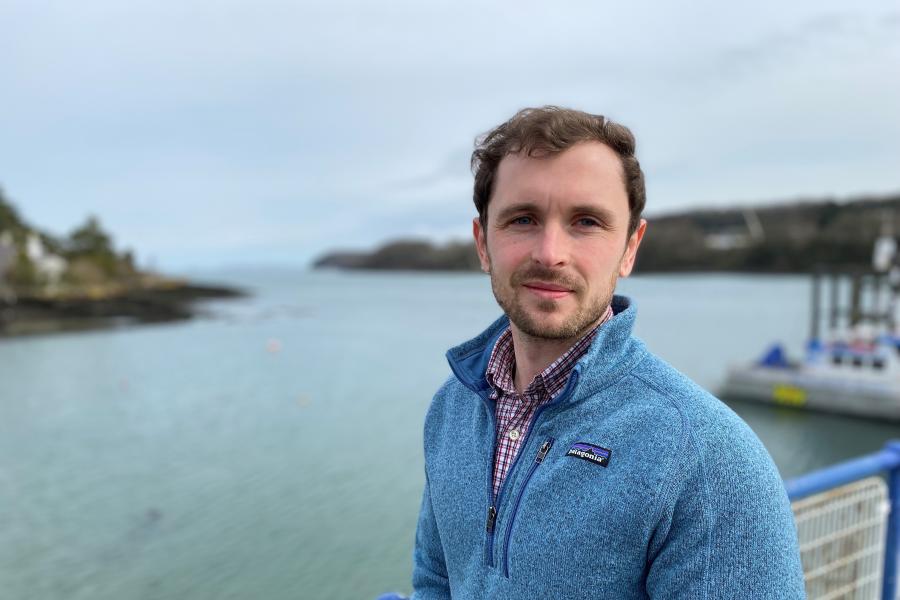Five leading researchers at Bangor University are listed among the world’s most highly cited researchers, placing them among the top 1% of researchers worldwide, according to the Clarivate Highly Cited Researchers 2025 List.
The researchers have each demonstrated significant and broad influence in their chosen field or fields of research as measured by the visibility of their research. Clarivate use an approach based on the number of times the work of a researcher is referenced by their peers. Citation based metrics like this are one of the ways that you can gain some sense of the visibility and influence of research outputs. Other valuable approaches and indexes are also available.
“Citations reflect the way in which research builds on what is already known,” explained Professor Paul Spencer, Bangor University’s Pro-Vice-Chancellor responsible for Research.
“Having five researchers included in such a prestigious and influential list is a tremendous achievement and a testament to the citation impact and visibility of Bangor University’s research, locally, nationally and globally. We are delighted with this latest affirmation of our research as an institution with a reputation for excellence.”
David Pendlebury, Head of Research Analysis at the Institute for Scientific Information at Clarivate said, “The Highly Cited Researchers list identifies and celebrates exceptional individual researchers at Bangor University who demonstrate significant and broad influence in their fields. They exemplify excellence in their research as well as integrity in their publication and citation practices. These researchers continue to shape the future of science, technology and academia globally and deliver innovation that drives societal progress.”
Appearing in the Clarivate Highly Cited Researchers list reflects the dedication of the technical team, PhD students and postdocs as well as my academic colleagues who have worked with me to produce a wide range of high quality research outputs delivering impact in Wales and internationally. This is very much a team award.
Professor Davey Jones’ research focuses on balancing ecosystem services and protecting human health. To this end he collaborates with industries such as Verily Life Sciences to deliver novel solutions to environmental and public health problems. He developed the national wastewater-based surveillance programme for COVID-19, which was subsequently adapted and rolled out for a wide range of other human pathogens in both a community and environmental setting. Recently, the team undertook the national assessment of antimicrobial resistance in the rivers of England and Wales. In an agricultural context, the team is looking at novel ways to offset greenhouse gas emissions and the development of more sustainable agricultural systems and the impact of plastics in the environment.
I am delighted that my research continues to be highly cited and highly influential. It is a fantastic recognition of the applied health services and nursing research that we conduct in the School of Health Sciences. I am very grateful to Bangor University and the School of Health Sciences for their continued support for my research and to my team for delivering such high quality research projects.
As a Registered Nurse and Registered Children's Nurse, Professor Jane Noyes is one of a very small number of UK Nurses to have been a made a Fellow of the American Academy of Nursing. Jane has developed a global reputation in child health and health research. She is best known as the longstanding leader of a Cochrane group of internationally renowned methodologists who have undertaken ground-breaking work to develop and clarify the methods for synthesizing qualitative and mixed-method evidence to inform clinical decision-making. Cochrane is the global leader in producing reviews of trusted evidence using rigorous methods to inform decision-making in health and social care. Jane is frequently called upon by global organisations such as the World Health Organisation and various US Government agencies to advise on evidence synthesis methods and their application in the decision-making process.
I am honoured to be included among Clarivate’s Highly Cited Researchers for 2025. This recognition reflects the quality and impact of the research carried out here at Bangor University. I am deeply grateful to my colleagues and collaborators for their dedication and insight, and to the University for its continued support in enabling world-leading research.
Dr Iestyn Woolway, NERC Independent Research Fellow at the School of Ocean Sciences, specialises in assessing the impacts of climate change, with much of his work focused on global environmental change. His research provides insights into how climate change affects ecosystems, offering roadmaps for resource managers tasked with considering ecosystem vulnerability in conservation and management decisions. Early in his independent career, he has published over 140 peer-reviewed articles, including first-author papers in Nature journals, and delivered plenary lectures at major international conferences, including the British Ecological Society and the Association for the Sciences of Limnology and Oceanography (ASLO). He has received numerous awards, including the Philip Leverhulme Prize from the Leverhulme Trust, the Royal Geographical Society (with IBG) Gill Memorial Award, the European Space Agency EO Excellence Award, the Dillwyn Medal for STEMM from the Learned Society of Wales, and the Yentsch-Schindler Award from ASLO. He was also recently named to the ENDS Power List 2025, which recognises the 100 UK environmental professionals who have made the greatest impact in the past two years.
It is a privilege to be included again in the Global Highly Cited Researchers list. Our research is only possible thanks to the dedication of partners across academia, public services, and global organisations including the World Health Organization. This achievement highlights the importance of multisectoral collaboration in driving research that informs policy and improves lives worldwide.
Professor Mark Bellis is an Honorary Professor of Public Health at Bangor University and Director of Research for Health, Technology and Science at Liverpool John Moores University where he also leads the Public Health Institute. Mark has established and led two World Health Organization Collaborating Centres - one focused on Violence Prevention and the other on Investment for Health and Well-being. For over a decade, he has also served as the UK Focal Point for violence and injury prevention to the WHO. He continues to undertake national and international research in fields including Adverse Childhood Experiences, alcohol, drugs, sexual health and commercial determinants of health. Mark is a registered Consultant in Public Health for the NHS in Wales and for Liverpool Local Authority in England. In 2009 he was awarded an OBE for services to healthcare.
It is an honour to be included within the Clarivate Highly Cited Researchers list again this year. My inclusion on the list shows how our collaborative research is influencing global knowledge, as well as informing policy and practice across Wales. We benefit from working within a university environment that supports and encourages research and partnership working within a small but highly progressive nation.
Professor Karen Hughes is Research and Capacity Development Manager in Policy and International Health at Public Health Wales and an Honorary Professor at Bangor University. She directs the work of the Public Health Collaborating Unit at Bangor University, an applied research collaboration between Bangor University and Public Health Wales. Karen has a broad public health research portfolio with particular interest in violence prevention and adverse childhood experiences. Her work includes implementing national population studies, original research studies, systematic literature reviews and intervention evaluations. Karen works with the World Health Organization to support their programme of activity to prevent and respond to violence and has published a wide range of academic papers and national and international reports to inform the development of public health policy and practice.
Bangor University is part of the San Francisco Declaration on Research Assessment (DORA) and is committed to ensuring that research and researchers are evaluated fairly, transparently, and in ways that support high-quality, diverse, and meaningful research.
Bangor University assesses researchers based on the quality, content, and significance across their range of contributions to the university, not on journal-based or citation-based metrics, and inclusion (or exclusion) in external rankings is not used as a primary indicator of researcher quality or value and does not form part of funding, appointment, and promotion considerations.
Read more: Clarivate Reveals World’s Influential Researchers in Highly Cited Researchers 2025 List






